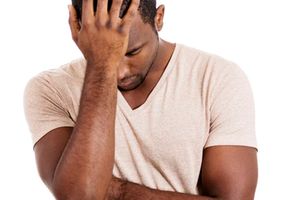Addiction: Compulsive gambling is not your friend, get help

Gambling addiction can be related to other addictions, such as alcoholism.
What you need to know:
- Gambling addiction is a severe issue that can lead to many negative consequences, including financial crises.
- If you think you are struggling with gambling addiction, the best thing you can do is talk about it openly and get help.
Gambling problems do not just affect one person, they often involve family members who have had their lives disrupted by an addict’s behaviour.
Gambling addiction affects many people. The more you gamble, the stronger your addiction becomes, and the harder it is to break free.
Here are some reasons people become addicted to gambling:
- Many people gamble for excitement or to relieve boredom.
- Gambling addiction can be related to other addictions, such as alcoholism.
- Others see gambling as a quick way to get rich.
- When you win at gambling, dopamine is released in your brain, which gives you a feeling of exhilaration that can lead to more risk-taking behaviour. This is part of what makes addictive behaviour hard to stop.
- Many people gamble to relieve stress. Unfortunately, stress is associated with an increased risk of addiction. However, gambling tends to increase stress levels in the long run.
- Some people also gamble simply because they enjoy the thrill.
Signs of an addicted gambler
If you gamble in secret, it’s possible that your gambling is out of control and has become an addiction.
- Gamblers often lie about their losses or spending habits. They may also borrow large sums without being honest with the lender.
- Neglecting or putting off responsibilities, such as paying bills or attending school/work to gamble instead. This is especially problematic if the person has a history of other addictions like drugs and alcohol.
- If you start taking more risks to get your fix, this may mean you are struggling with a gambling addiction.
- People who gamble compulsively experience feelings of restlessness and irritability when they cannot get access to their preferred forms of entertainment or recreation, such as the casino.
Particularly problematic behaviour includes:
- Excessive time spent on planning trips/time at casinos
- Frequently preoccupied with gambling-related thoughts
- Increased tolerance (takes greater risks, spends more money)
- Experiencing withdrawal symptoms when unable to play games or use online betting sites.
- Incurring debts that could cause one to steal or sell their possessions to get the money for gambling. This is particularly true of problem gamblers who are in denial about their addiction.
- Gambling to escape problems or relieve negative emotions such as guilt, anxiety, frustration, and other unresolved emotional issues can lead to an increased risk of developing a severe gambling habit that’s hard to break.
Gambling and depression
One of the reasons people develop gambling addiction is because it is an easy way to escape from negative emotions. Gambling gives these people a sense of hope and excitement, even if only temporary. But they will lose all their money in the process and become depressed as a result.
In an interview with Aunt Truphena, a counseling psychologist, she said that gambling could cause anxiety, panic attacks, and to some extent, hallucinations.
She further advised that gamblers should be helped and not rejected. In other words, encourage the addict to seek help.
Treating the addiction
Rehabilitation
Treatment for a gambling addiction will depend on the severity of your problem.
The treatment options include group therapy, individual counselling, and residential rehabilitation, where you can get enough rest away from any temptations that may trigger a relapse.
Note that relapse is part of the recovery process and that it is not a sign of failure.
Talk to your doctor about the best plan for you before starting treatment because there may be other co-occurring conditions such as depression or anxiety disorders.
Behaviour change
You do not have to give up enjoyable things to stop gambling, but it is advisable to avoid anything that could make the problem worse.
You can also use meditation, yoga, and cognitive behavioural therapy (CBT) as effective treatments for depression caused by gambling addictions.




